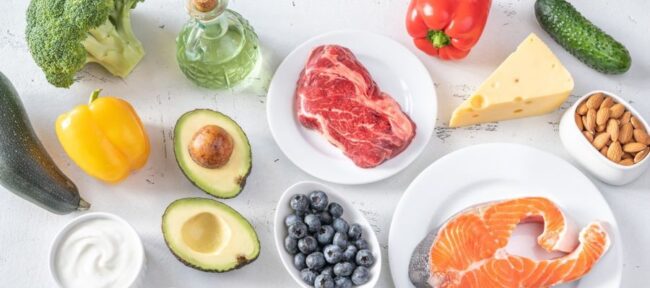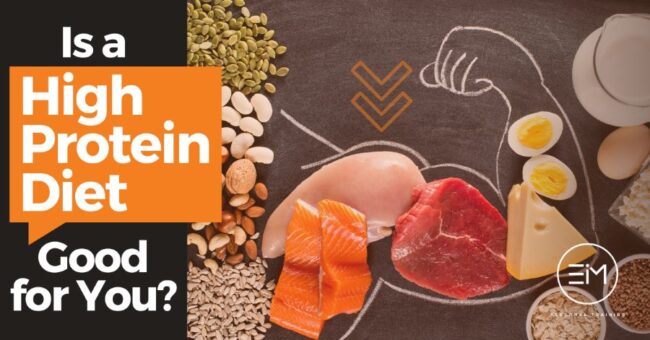When it comes to weight loss, diets come in all shapes and sizes, but one common strategy is to focus on a protein diet. The goal of this type of plan is to emphasize protein intake while reducing carbohydrates and fats, ultimately promoting fat loss while maintaining muscle mass. A 1 Week Protein Diet Plan for weight loss follows this philosophy, offering structure and simplicity to achieve results quickly.

In this blog, we’ll explore the concept of a protein diet, discuss how it differs from traditional diets, and provide a practical 7-day plan to jumpstart your weight loss journey.
What is a Protein Diet?
A protein diet is a type of eating plan that prioritizes protein over other macronutrients like carbohydrates and fats. Protein is an essential building block for the body, supporting muscle repair, immune function, and metabolic activity.
In a typical protein diet for weight loss, around 30-40% of your daily calories come from protein, with the rest of your calorie intake made up of healthy fats and limited carbs. This high intake of protein helps keep you feeling fuller for longer periods, reduces cravings, and ensures your body has the nutrients it needs to maintain lean muscle mass while burning fat.
How Does a Protein Diet Differ from Traditional Diets?
A traditional diet is often more balanced in terms of macronutrients. The typical macronutrient distribution for a balanced diet might look like this:

- 45-65% carbohydrates for energy,
- 20-35% fats for essential fatty acids and hormone production,
- 10-20% protein for muscle repair and body functions.
In contrast, a protein diet shifts the focus to protein as the primary nutrient, with significantly lower carbohydrate and fat intake. This is especially useful for weight loss since protein:
- Increases satiety, reducing the likelihood of overeating,
- Has a higher thermic effect, meaning the body burns more calories digesting protein than it does carbs or fats,
- Helps preserve muscle mass, which is important for keeping your metabolism high during weight loss.
The Benefits of a Protein Diet for Weight Loss

- Promotes Fat Loss While Maintaining Muscle
- One of the biggest advantages of a protein-rich diet is its ability to help you lose fat without sacrificing muscle. When you consume fewer calories than you burn (caloric deficit), your body will use stored fat as fuel, and protein ensures that your muscles stay intact during this process.
- Reduces Hunger and Cravings
- Protein takes longer to digest than carbohydrates, helping you stay full for longer. This makes it easier to stick to a lower-calorie diet without feeling hungry all the time. By keeping cravings in check, you’re less likely to indulge in unhealthy snacks or overeat.
- Boosts Metabolism
- The thermic effect of food (TEF) refers to the calories burned through digestion. Protein has the highest TEF compared to fats and carbohydrates, meaning your body burns more calories breaking down protein-rich foods.
- Stabilizes Blood Sugar Levels
- A high-protein, low-carb diet can help stabilize blood sugar levels by minimizing insulin spikes caused by consuming too many carbs. Stable blood sugar means fewer energy crashes and less chance of overeating due to sudden hunger.
1 Week Protein Diet Plan for Weight Loss
Here’s a 7-day protein diet plan to help kickstart your weight loss journey. This plan focuses on lean protein sources, healthy fats, and limited carbs, making it easier to stick to while still providing your body with essential nutrients.
Day 1:
Breakfast:
- Scrambled eggs (2 eggs) with spinach and tomatoes
- 1 slice of whole-grain toast
Lunch:
- Grilled chicken breast (skinless)
- Mixed green salad with cucumber, avocado, and olive oil dressing
Dinner:
- Baked salmon with a side of steamed broccoli
- 1 small sweet potato
Snack:
- Greek yogurt (low-fat) with a handful of berries
Day 2:
Breakfast:
- Protein smoothie made with almond milk, protein powder, spinach, and chia seeds
Lunch:
- Turkey lettuce wraps with lean turkey slices, avocado, and mixed veggies
Dinner:
- Grilled shrimp skewers with a side of quinoa and grilled vegetables
Snack:
- Cottage cheese with cucumber slices
Day 3:
Breakfast:
- Omelet with mushrooms, onions, and bell peppers
- 1 slice of whole-grain toast
Lunch:
- Tuna salad made with light mayo, celery, and leafy greens
- 1 apple
Dinner:
- Grilled lean steak with roasted Brussels sprouts and a small portion of brown rice
Snack:
- A handful of almonds
Day 4:
Breakfast:
- Scrambled eggs with smoked salmon and avocado slices
Lunch:
- Grilled chicken salad with mixed greens, tomatoes, cucumbers, and olive oil dressing
Dinner:
- Baked cod with a side of sautéed spinach and roasted sweet potato
Snack:
- Low-fat Greek yogurt with walnuts
Day 5:
Breakfast:
- Protein pancakes made with protein powder, egg whites, and oats
- Fresh berries
Lunch:
- Turkey burger (no bun) with a side of steamed asparagus
Dinner:
- Baked chicken thighs with roasted zucchini and quinoa
Snack:
- Hard-boiled eggs (2)
Day 6:
Breakfast:
- Smoothie bowl with protein powder, almond milk, spinach, and chia seeds topped with sliced bananas
Lunch:
- Grilled salmon with a spinach and feta salad
Dinner:
- Lean ground turkey stir-fry with mixed vegetables and cauliflower rice
Snack:
- Sliced turkey with cucumber sticks
Day 7:
Breakfast:
- Omelet with lean turkey sausage, onions, and peppers
Lunch:
- Grilled shrimp with avocado salsa and mixed greens
Dinner:
- Baked chicken breast with roasted Brussels sprouts and a small serving of quinoa
Snack:
- Cottage cheese with a handful of blueberries
Tips for Success on a 1 Week Protein Diet Plan
- Focus on Lean Protein Sources
- Prioritize lean meats like chicken breast, turkey, fish, and plant-based options such as tofu or legumes. These provide high-quality protein without the extra calories from fat.
- Portion Control
- While protein helps keep you full, it’s important to monitor portion sizes to stay within your calorie goals. A palm-sized serving of meat or a half-cup of beans is a good guideline.
- Incorporate Vegetables and Healthy Fats
- Balance your meals with plenty of vegetables for fiber, vitamins, and minerals. Incorporating healthy fats from sources like avocado, olive oil, and nuts will also help keep you satisfied.
- Stay Hydrated
- Drink plenty of water throughout the day. Sometimes thirst is mistaken for hunger, and staying hydrated helps flush out toxins while supporting digestion and metabolism.
- Meal Prep for Success
- To stay on track, plan and prep your meals in advance. Having healthy, high-protein meals ready will help you avoid the temptation to eat processed or high-carb foods.
Potential Challenges and Considerations
While a 1 week protein diet plan can offer rapid results, there are a few challenges to consider:
- Sustainability: A diet that is too restrictive in calories or carbs may be difficult to maintain long-term. Consider slowly reintroducing healthy carbs after the initial week to create a balanced plan that works for you in the long run.
- Nutrient Deficiency: By focusing primarily on protein, you may miss out on certain nutrients typically found in higher-carb or fat-based foods. Make sure you’re still getting essential nutrients through vegetables, healthy fats, and potentially supplements if needed.
- Individualized Approach: Everyone’s body responds differently to diet plans. While a high protein diet may work wonders for some, it’s important to listen to your body and adjust the plan according to how you feel.
Conclusion
The 1 week protein diet plan for weight loss is an excellent way to kickstart fat loss while maintaining muscle mass and controlling hunger. By prioritizing lean protein sources and keeping calories in check, this plan can help you achieve your goals efficiently.
However, as with any diet, it’s important to customize it to your personal needs, goals, and lifestyle for long-term success. Always consult with a healthcare provider or nutritionist before making any significant dietary changes, especially if you have underlying health conditions.

Pingback: What is the Carnivore Diet and How Does it Work - fithealth.top